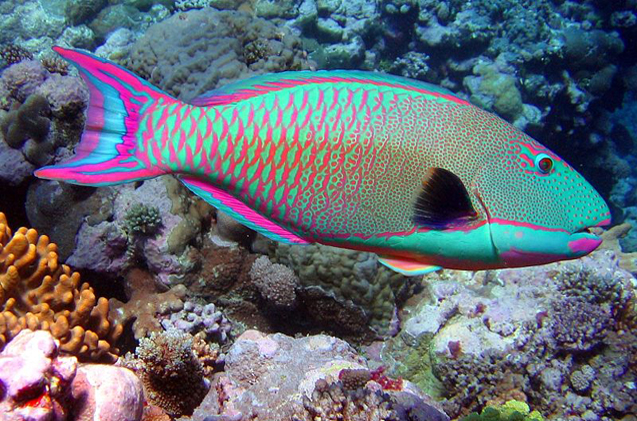Experts warn that during the last 25 years, the presence of at least 10 species of Parrot Fish has fallen off the coast of Quintana Roo, in 50% due to factors such as pollution, fishing, climate change and destruction of their ecosystem.
This is in accordance with a yearly follow-up of the “Healthy Reefs for Healthy People” initiative, which insists on the importance of declaring Parrot Fish as a marine species protected by federal authorities, through the Official Mexican Standard (NOM) 059.
Melina Soto, coordinator of this group in Mexico stressed that these fish are determinant in the health of reefs and corals, besides the fact that they literally create sand for beaches, that have also been disappearing during the last years.
“What worries us the most is that the organisms we observe are small, juveniles that are not old enough to reproduce. Also one of the characteristics of these fish is that they change sex with size, when they are small they are females and when they grow they become males, ” said the researcher.
She explained that these fish are “shepherds” of the reef and eat the algae, preventing them from suffocating the coral, in addition to generating white sand, because they take bits of slab and excrete fine white sand. The expert said that an adult Parrot Fish can produce up to 40 kilos of sand per year.

(Photo: SIPSE)
Melina Soto underlined that there is a public consultation in force, which must be supported by citizens on the SEMARNAT website, with the intention of protecting the Parrot Fish, along with other species such as the macaw, the blue, midnight, queen, princess, striped, red band, yellow tail and red tail, all of which can be found along the coast of Quintana Roo, but in lesser numbers though.
“The consultation of NOM 059 is open to the public and citizens can include comments on why it is so important to protect Parrot Fish, which is supported by this initiative. Citizens just have to go to the SEMARNAT web portal and express their support towards this species. The destruction of their habitat is eminent, since they depend on mangroves and seagrass, and therefore, pollution, increased temperatures (global warming) and anthropogenic impact (human activity) are killing them,” expert Melina Soto concluded.
Source: SIPSE



